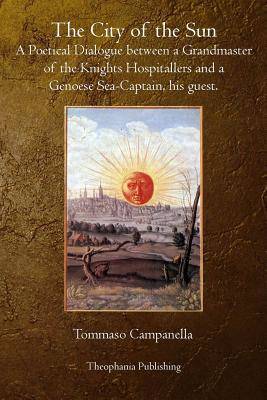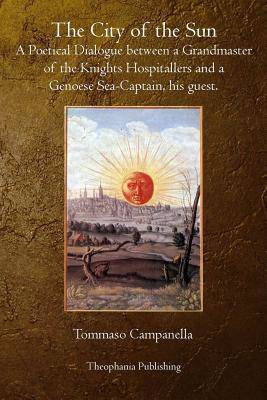
- Retrait gratuit dans votre magasin Club
- 7.000.000 titres dans notre catalogue
- Payer en toute sécurité
- Toujours un magasin près de chez vous
- Retrait gratuit dans votre magasin Club
- 7.000.0000 titres dans notre catalogue
- Payer en toute sécurité
- Toujours un magasin près de chez vous
Description
Thank you for checking out this book by Theophania Publishing. We appreciate your business and look forward to serving you soon. We have thousands of titles available, and we invite you to search for us by name, contact us via our website, or download our most recent catalogues. Born in Stignano (in the county of Stilo) in the province of Reggio di Calabria in southern Italy, Campanella was a child prodigy. Son of a poor and illiterate cobbler, he entered the Dominican Order before the age of fifteen, taking the name of fra' Tommaso in honour of Thomas Aquinas. He studied theology and philosophy with several masters. Early on, he became disenchanted with the Aristotelian orthodoxy and attracted by the empiricism of Bernardino Telesio (1509-1588), who taught that knowledge is sensation and that all things in nature possess sensation. Campanella wrote his first work, Philosophia Sensibus Demonstrata ("Philosophy demonstrated by the senses"), published in 1592, in defence of Telesio. In Naples he was also initiated in astrology; astrological speculations would become a constant feature in his writings. Campanella's heterodox views, especially his opposition to the authority of Aristotle, brought him into conflict with the ecclesiastical authorities. Denounced to the Inquisition and cited before the Holy Office in Rome, he was confined in a convent until 1597. After his liberation, Campanella returned to Calabria, where he was accused of leading a conspiracy against the Spanish rule in his hometown of Stilo. Campanella's aim was to establish a society based on the community of goods and wives, for on the basis of the prophecies of Joachim of Fiore and his own astrological observations, he foresaw the advent of the Age of the Spirit in the year 1600. Betrayed by two of his fellow conspirators, he was captured and incarcerated in Naples, where he was tortured on the rack. He made a full confession and would have been put to death if he had not feigned madness and set his cell on fire. He was tortured further (a total of seven times) and then, crippled and ill, was sentenced to life imprisonment. Campanella spent twenty-seven years imprisoned in Naples, often in the worst conditions. During his detention, he wrote his most important works: The Monarchy of Spain, Political Aphorisms, Atheismus triumphatus, Quod reminiscetur, Metaphysica, Theologia, and his most famous work, The City of the Sun. He even intervened in the first trial against Galileo Galilei with his courageous The Defense of Galileo. Ironically, Galileo himself probably would not have wanted Campanella's assistance because of Campanella's sometimes outlandish ideas and prior conviction of heresy. Campanella was finally released from his prison in 1626, through Pope Urban VIII, who personally interceded on his behalf with Philip IV of Spain. Taken to Rome and held for a time by the Holy Office, Campanella was restored to full liberty in 1629. He lived for five years in Rome, where he was Urban's advisor in astrological matters. In 1634, however, a new conspiracy in Calabria, led by one of his followers, threatened fresh troubles. With the aid of Cardinal Barberini and the French Ambassador de Noailles, he fled to France, where he was received at the court of Louis XIII with marked favour. Protected by Cardinal Richelieu and granted a liberal pension by the king, he spent the rest of his days in the convent of Saint Honoré in Paris. His last work was a poem, the Ecloga in portentosam Delphini nativitatem, celebrating the birth of the future Louis XIV.
Spécifications
Parties prenantes
- Auteur(s) :
- Editeur:
Contenu
- Nombre de pages :
- 46
- Langue:
- Anglais
Caractéristiques
- EAN:
- 9781926842547
- Date de parution :
- 02-05-11
- Format:
- Livre broché
- Format numérique:
- Trade paperback (VS)
- Dimensions :
- 152 mm x 229 mm
- Poids :
- 77 g

Les avis
Nous publions uniquement les avis qui respectent les conditions requises. Consultez nos conditions pour les avis.






